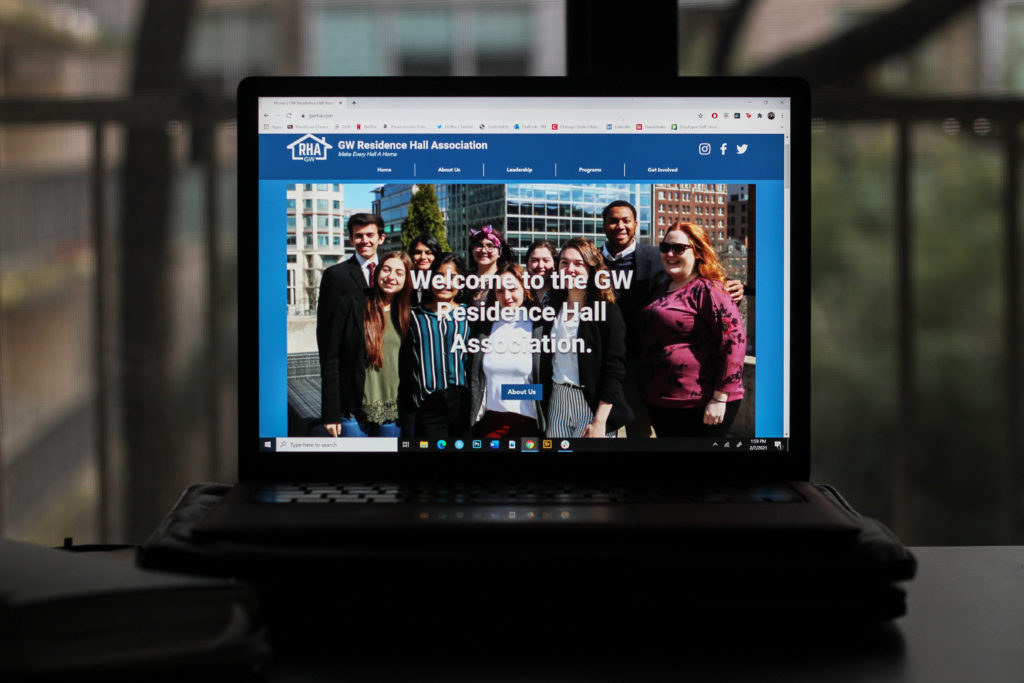The Residence Hall Association is expanding its in-person services to start rebuilding residential community as more students return to campus this spring.
RHA President Manvitha Kapireddy said members reinstated building representatives and residence hall councils to create programming, like game nights and letter-writing campaigns. RHA members said the transition to more in-person services, following the return of a 1,500 students to campus, will help foster community in residence halls and rebuild social connections that students have been missing for months.
“Overall, the biggest change from the fall to the spring in terms of programming is our increased focus on residence hall-specific programs,” Kapireddy said in an email. “Now that we have elected student leaders serving in the residence halls, we are hoping to form deeper connections with our on-campus students and create a better sense of community.”
Prior to this semester, the RHA focused on virtual programming with only about 500 students living in residence halls throughout the fall.
Kapireddy said each open residence hall, which includes District and Potomac houses and Shenkman, South and Francis Scott Key halls, will feature two building representatives and five hall council members. She said the building representatives, in charge of advocacy and programming development, attended a virtual training conference late last month and started planning events for residence halls last week.
“We are hoping they will be able to connect with their hall’s residents on a more personal level,” she said.
Kapireddy said the RHA will also continue to operate four student planning committees overseeing equity and inclusion, COVID-19 support, advocacy and programming, which were first launched last fall. She said the committees will continue to plan events and initiatives for those off and on campus.
She said the RHA hosted a virtual game night last week and relaunched the Write-a-Friend Program, which connects students as pen pals, following positive feedback from the fall. She added that members plan to redistribute cleaning supplies later this month, which she said the University packed from residence hall rooms and stored after students left campus back in March.
Ruchi Amin, the director of hall development for the RHA, said members plan to distribute food in residence halls and host game and movie nights if COVID-19 restrictions are eased back later in the semester. In the meantime, she said the return of building representatives can help “make every hall a home” with more online and eventually in-person group events that will help students interact.
She also said the RHA will host virtual Netflix parties for residential students.
Amin said social media, where members have created graphics to share updates, will help promote those programs to students in each residence hall. She said members created Instagram pages to promote activities for each residence hall occupied in the spring.
“Social media, especially now, is the best way to get in contact with students,” she said. “Not only do we spend a lot more time on our phones because we’re not social interacting as much, but it’s still a way to keep communications going. And it’s a fun way for us to promote our activities.”
Amin said the RHA plans to distribute free, GW-themed masks to each occupied residence hall with help from the Office of Campus Living and Residential Education. The COVID-19 support committee will also post updates about guidelines and positive cases on campus, she said.
Amid added that any in-person activities will adhere to the University’s COVID-19 guidelines, limiting in-person gatherings to seven to 10 people.
“I would encourage everyone to respond to their building reps when they reach out to students who are on campus so that they can be more active and engaged in their communities,” she said.
Carsyn Baxter, a building representative for Shenkman Hall, said she wanted to represent Shenkman residents to rebuild the campus community that the pandemic “disrupted” in Foggy Bottom. Baxter said she plans to incorporate new virtual events – like art classes, alumni networking events and an “Among Us” game night that her co-representative is planning – to promote more interaction between residents.
Baxter said she’s keeping in touch with students via Instagram, a GroupMe chat, emails and posters.
She said she wants to host more in-person events later in March once officials loosen restrictions, suggesting a cookout in the hall’s outdoor gathering area. She added that representatives for Shenkman will conduct a Valentine’s Day candy gram program where students can send each other candy and notes.
“One thing that stuck out to me about GW was the sense of community when I applied when I first got to campus, and I know that that’s been disrupted for a lot of current and new students,” Baxter said. “Being a building up gave me the opportunity to foster that sense of community for people who are moving into campus, especially with everything that’s going on.”
Jarrod Wardwell contributed reporting.








